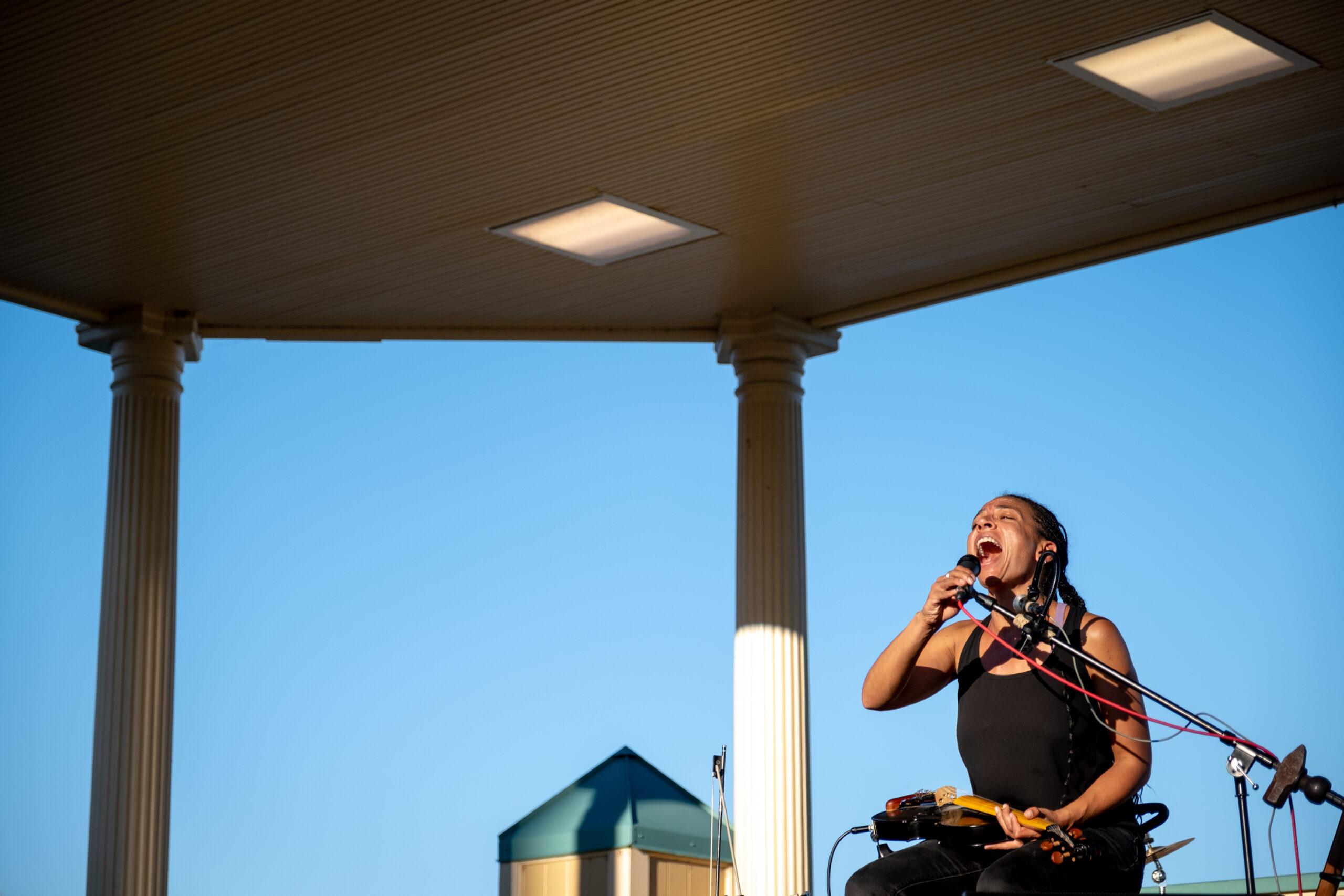One Titwrench Festival stands out in Katie Rothery's memory.
In 2011, Mercury Café donated its space for the festival. Witch Collective set up an indoor marketplace in the downstairs Jungle Room, and Titwrench Collective set up two stages upstairs in the dance hall, so when one set ended, people could simply turn to face the other stage when the next act came on.
Rothery, one of the festival's volunteer coordinators, was excited to see some folks who'd volunteered over the years perform shows of their own for the first time. She remembers that one group, the performance art troupe Milch de la Máquina, turned off all the lights in the dance hall. Then, their sound and light show began.
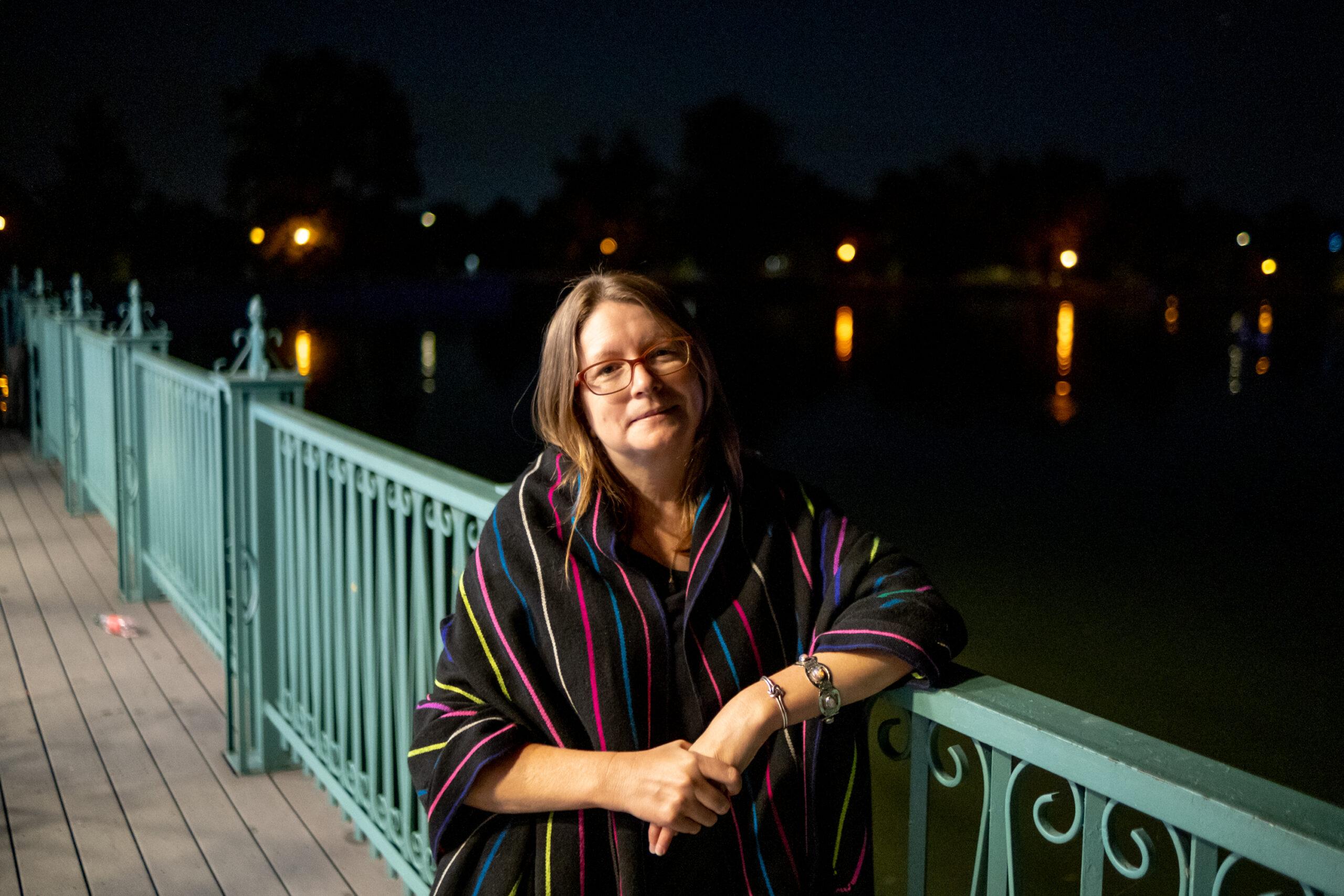
"They were all unidentifiable as themselves. They were all wearing black, and under a shroud, and moving under this fabric in the dark with flashes of light," Rothery said. "And then just making these strange moans, and then these other techno machine noises. Industrial noises, too. And the crowd just being kind of huddled together in the dark and experiencing that together. That was pretty magical."
Afterwards, she remembers sitting at the picnic tables outside of the café with audience members and with other Titwrench volunteers who had been there all night.
"All of us just talking about it -- talking about what we'd just seen, talking about what we just experienced, talking about our lives," Rothery said. "To me, that's what Titwrench is. "
Titwrench Festival, the long running community music festival that for more than decade has offered an entry point into the music scene for queer, female, experimental and emerging musicians, has come to an end.
The festival closed its 13-year run Sunday evening with a final free, all-ages festival in City Park. In many ways, it was a festival like others Titwrench had put on. The evening event offered food from Maiz food truck and Konjo Ethiopian, and once again local vendors Witch Collective laid out a market of artisan goods and herbs. Programming included live paintings and movement workshops, as well as performances by Santa Fe-based singer songwriter Nacha Mendez and local groups The Milk Blossoms, Machete Mouth, My Name is Harriett, and Sol Vida Worldwide, all emceed by local poet and artist Suzi Q. Smith.
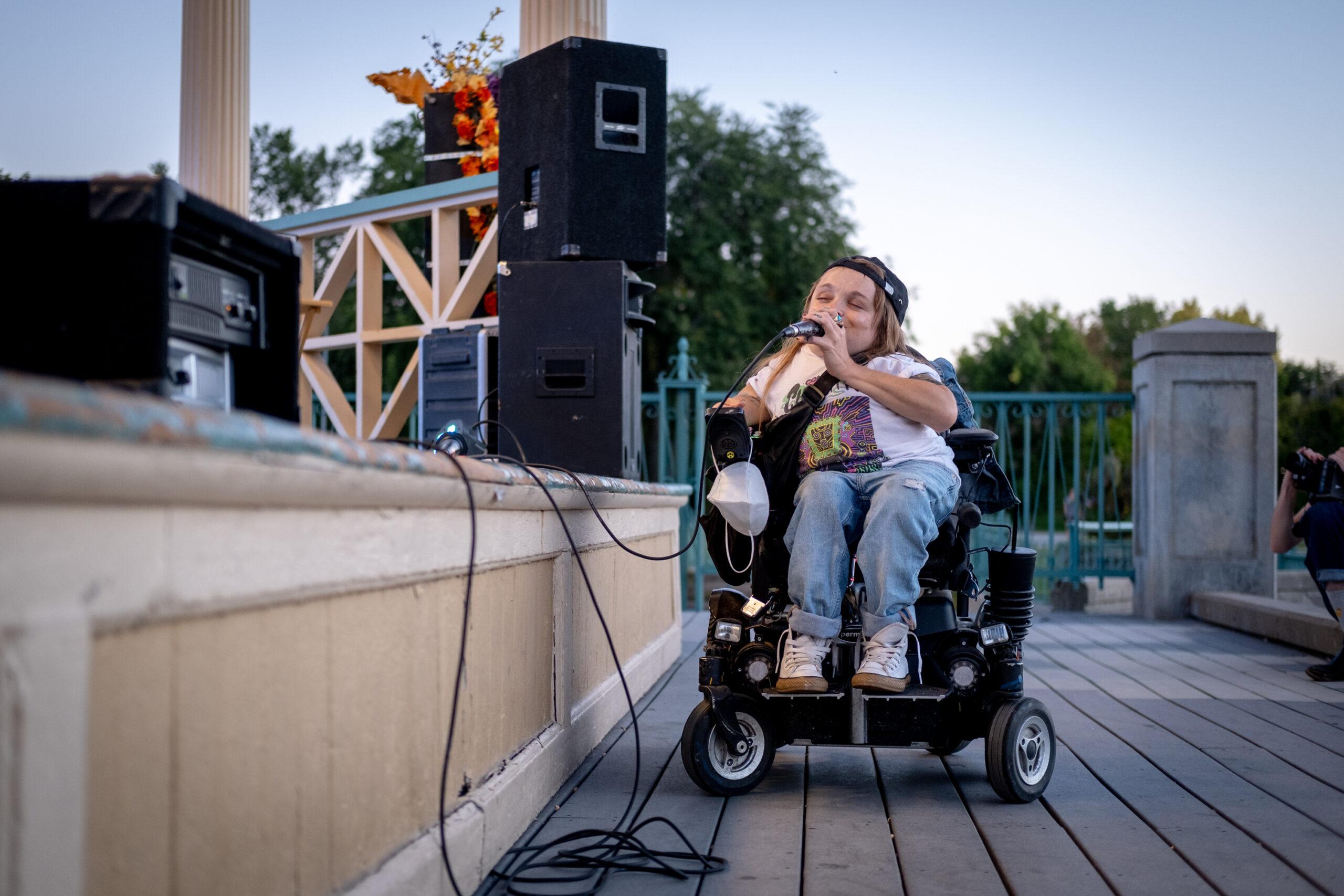
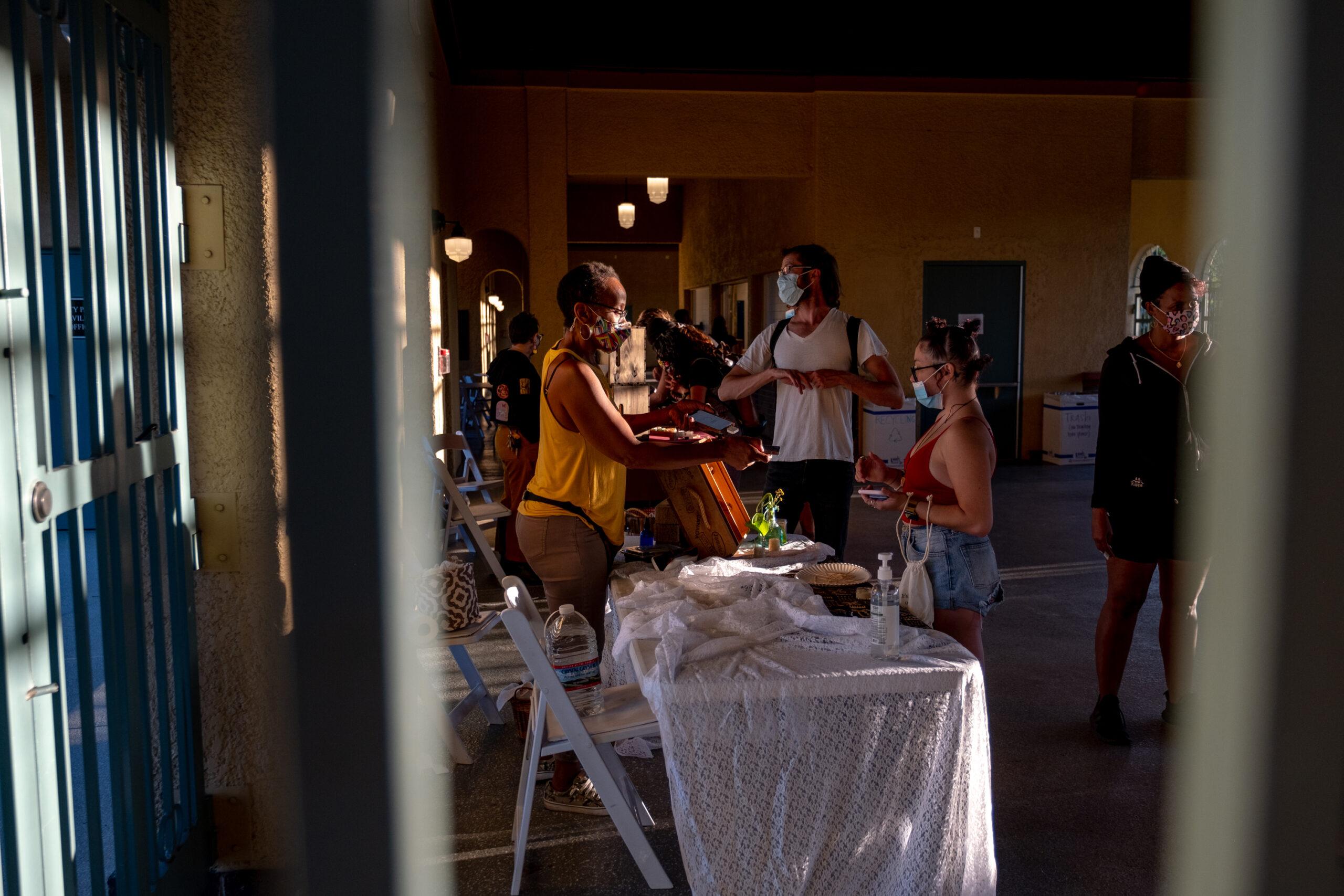
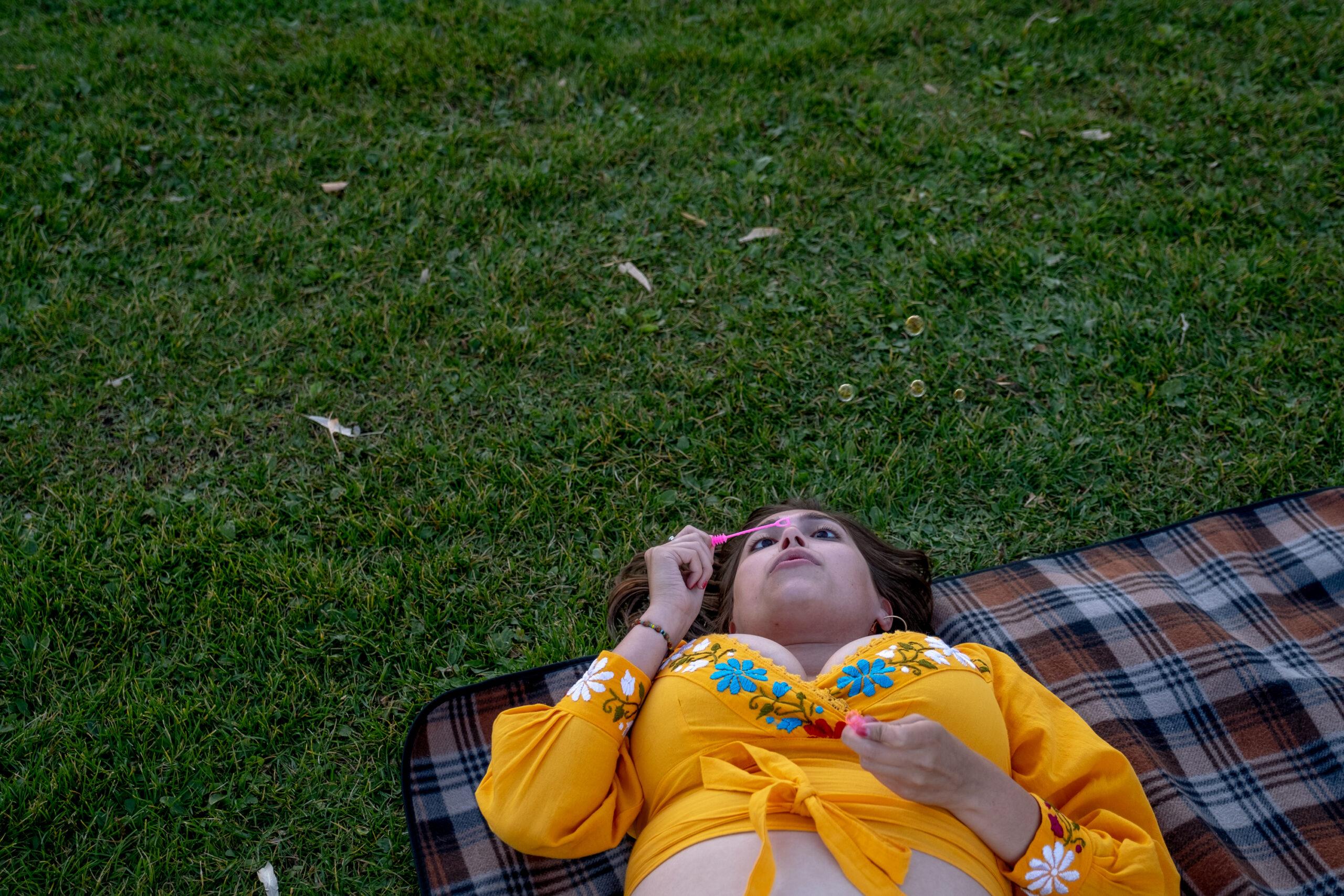
The festival was Titwrench Collective's last, but it also felt like a return, after last year's event was cancelled due to the pandemic.
"We definitely wanted to make it feel like Titwrench," Rothery said. "I think we're just happy to be able to get together again, and make music together again, and be a community in the way that we have in the past, in person, with masks."
Rothery said that that since the collective announced that the 2021 festival would be Titwrench's last, the Collective has seen an outpouring of concern and support from the community.
"Everybody's like, why is it the end? It can't be the end!" she said. "It's just, after 13 years of scrambling and doing the DIY thing, and, I think, making a difference, it's a lot. It's a lot of commitment. And we're ready to create an opportunity for maybe another generation, or others of our generation, or even older generations, to also do this work. "
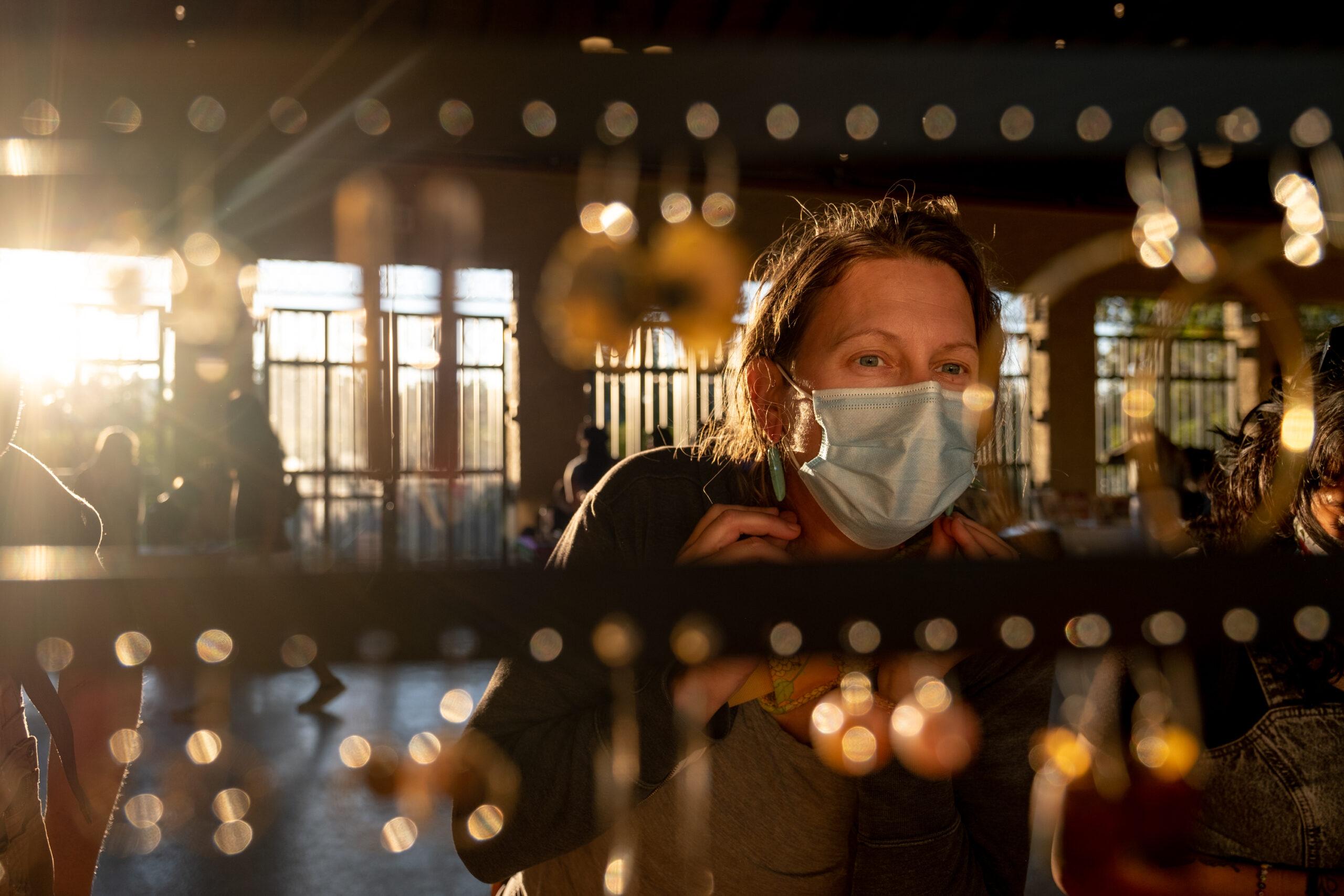
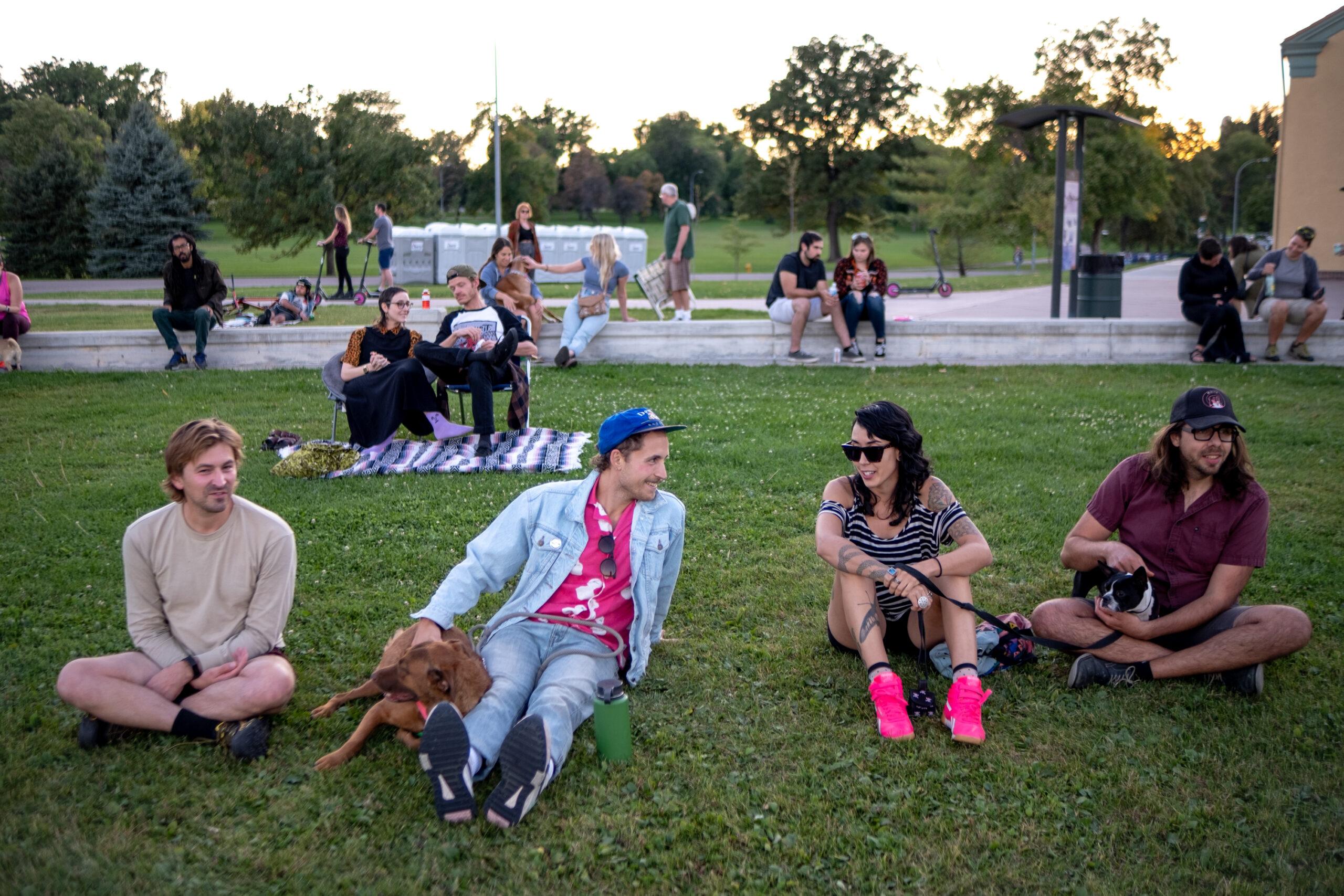
Still, she says it's likely not the last we'll hear from Titwrench's organizers.
"We will definitely still be active in the community, will still be active working towards the goals and values of Titwrench, because that's how we live our lives," she said. "You can take the Titwrench name off of us, but you can't take the spirit."
In 2008, a group of artists, writers, educators, performers, and activists came together to talk about what was wrong with the music scene in Denver.
Those conversations led Sarah Slater, one of Titwrench's cofounders, to take over the programming of an event at Meadowlark, where she a curated lineup of women and queer artist-led sets that would become the very first Titwrench event.
Rothery first volunteered as an organizer in 2010 after attending several Titwrench events. She said she felt drawn by the festival's radical nature.
"It was this vision of making the Denver music scene more reflective of the Denver community. Having representation on stage, allowing for more risk taking, letting people who had never performed before be on stage and share their creations with the world. This idea of always inviting queer voices, people who identify as female, nonbinary voices, diverse voices," she said. "So much of the music scene then was carefully orchestrated, and also very hetero male-centered. And this community wasn't that. It was trying to build a different kind of art scene in Denver. And it was really collegial, it was really collaborative. People were allowed to bring whatever skills and talents they had to the table, were encouraged to try new things. And that felt really good."
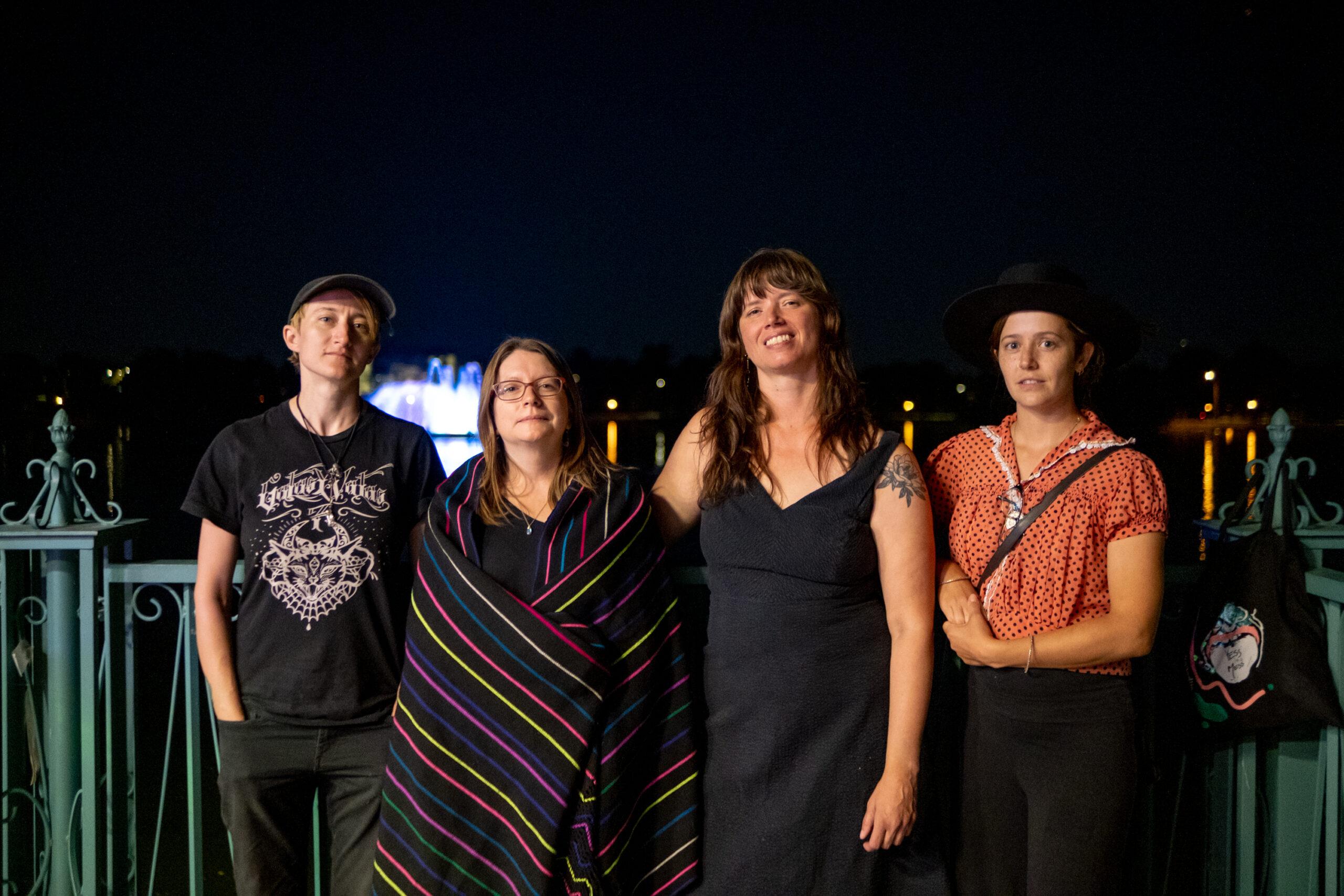
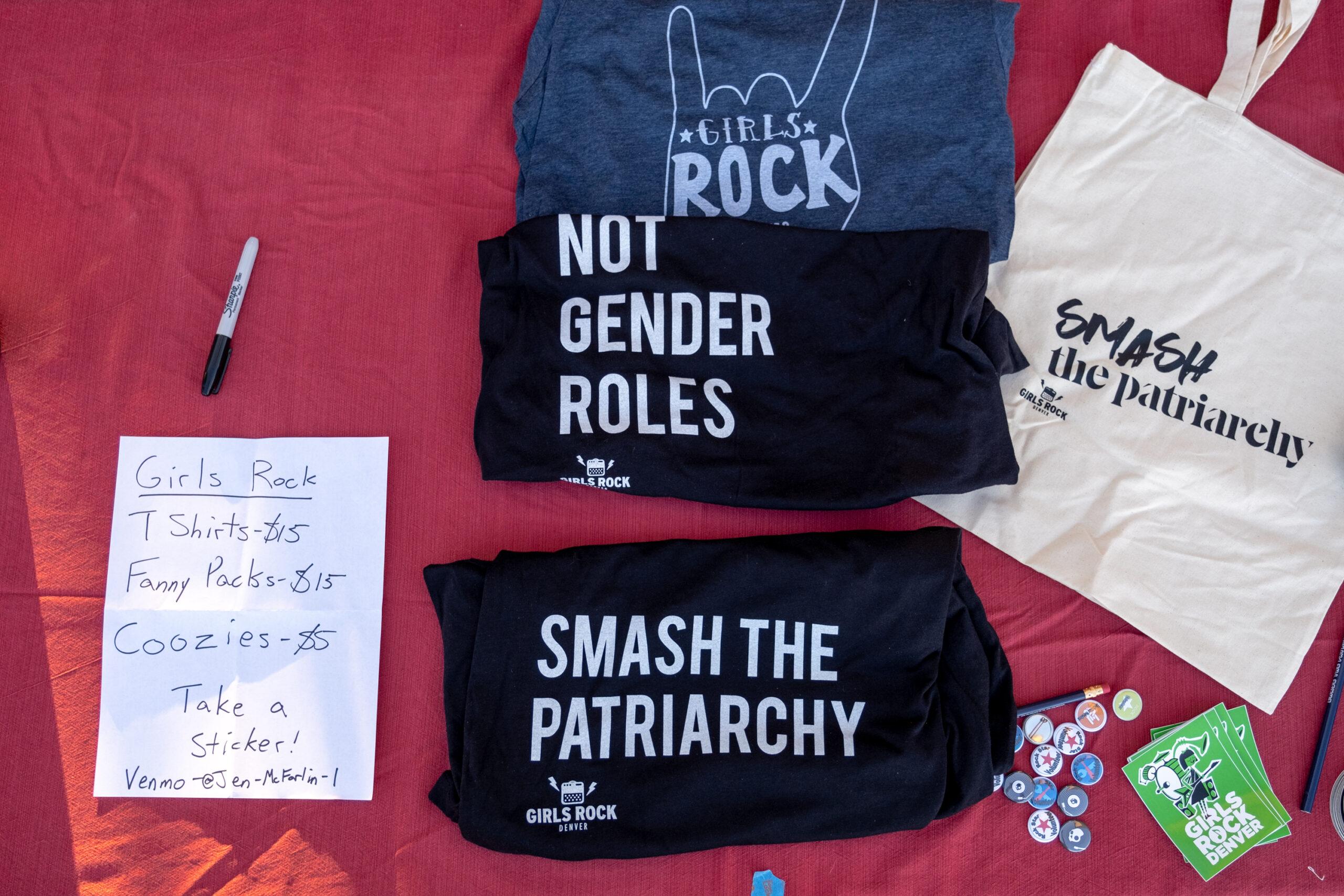
After the inaugural Titwrench, the collective went on to organize a music festival every year, as well as other fundraising events, dance parties, showcases, clothing swaps and workshops. Over the years, the collective built a reputation as an inclusive platform for emerging and underrepresented artists, and artists pushing boundaries across mediums and genres. They even staged an international Titwrench in Stockholm.
The festival was led entirely by volunteers who were committed to building community within the arts scene and demystifying the music industry for emerging artists.
"Part of that community building is skill-sharing, and knowledge sharing, and sharing your radical ideas and teaching people," Rothery said. But she said it's also about connection. Rothery says the kind of connection they were aiming to foster was more than just "networking," which has more transactional connotations and is driven more by personal and monetary gain than a longing for community.
"It's important to us as a part of the culture that we are reinforcing the values of connectedness -- actual human-to-human connectedness," Rothery said. "And that community is actually authentically talking and working and collaborating with one another."
The collective isn't financially driven. It's made up entirely of volunteers, and all money raised and earned from events goes to the artists. This year's festival was totally free to attend, and previous events were free or sliding-scale. Like other Titwrench events, it was designed to be family-friendly and accessible to everyone, despite the group's edgy name.
"I wish we had a cooler origin story for Titwrench. We really should make one up," Rothery said. "But it was just Sarah and some of the earlier organizers sitting around coming up with, what are we going to call this? And somebody tossed that one out and everybody liked it. There was a lot of laughter, I think. And it just fit what we were trying to do."
Over the years, the collective entertained the idea of changing the name. But they always dismissed the idea.
"We like it," Rothery said. "It fits still."
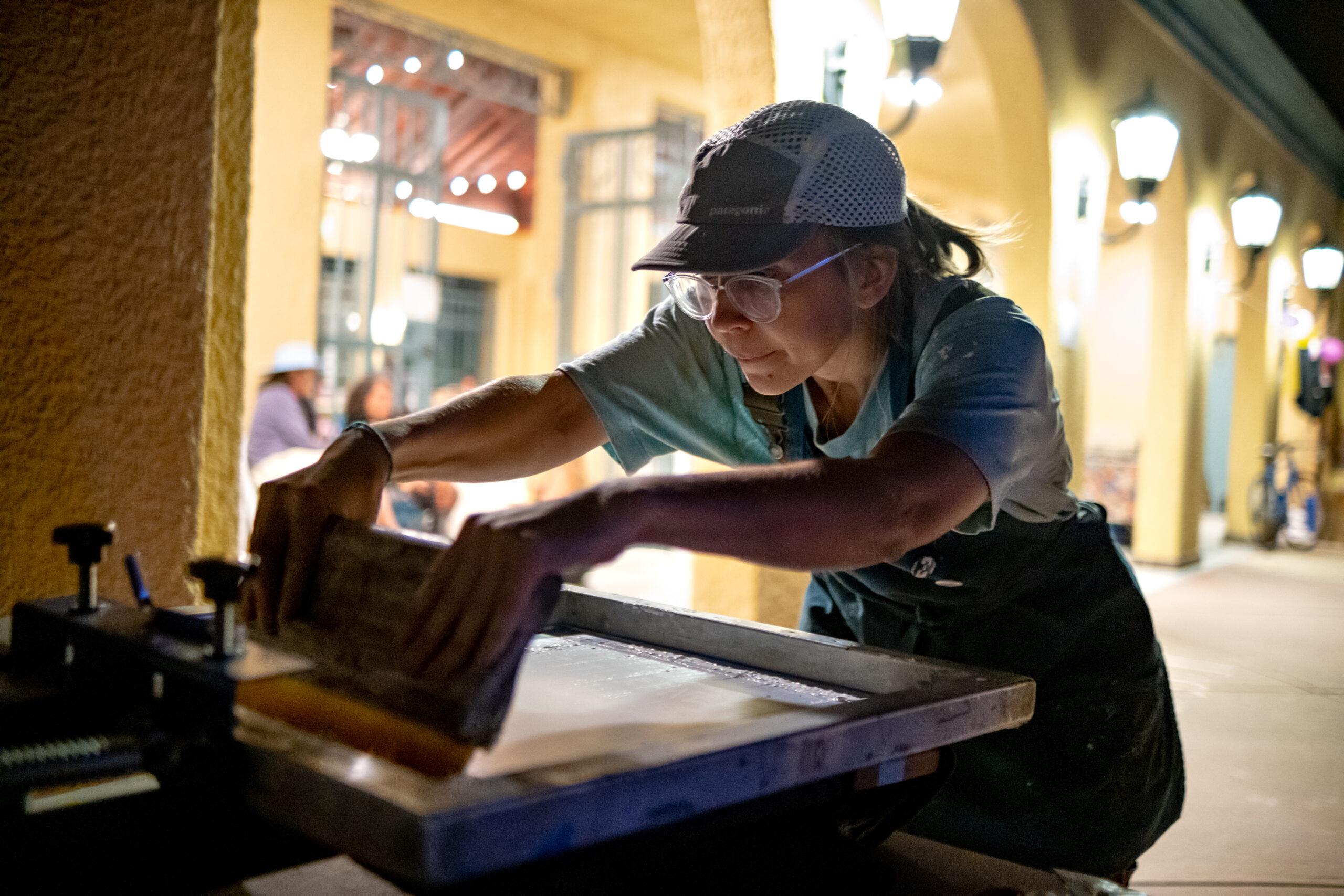
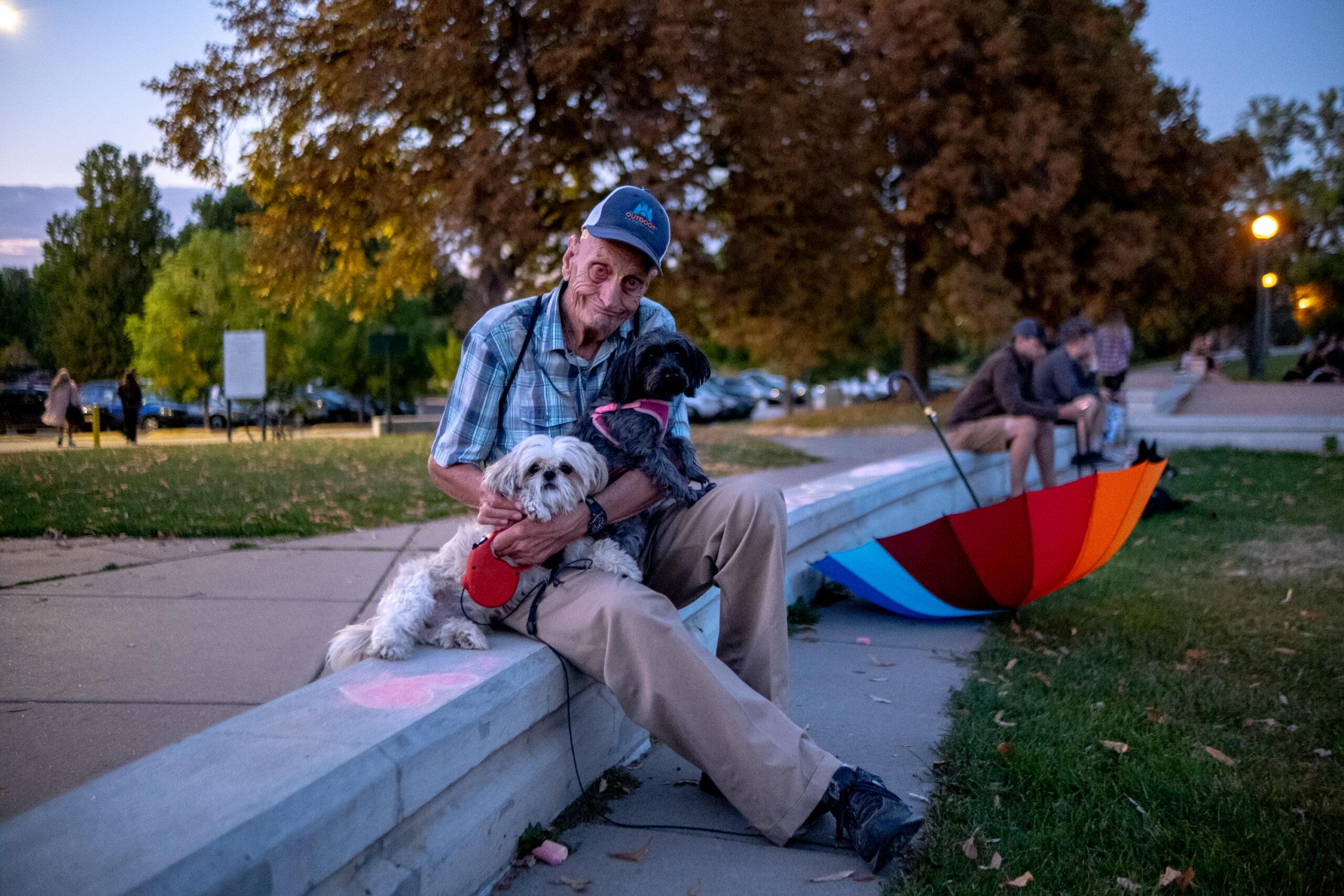
The end of Titwrench coincides with a shift in Denver's broader DIY scene.
In previous years, Titwrench was held at some of Denver's classic DIY spaces, like Glob and Rhinoceropolis, both of which shut down in 2016 following safety concerns sparked by the Ghost Ship fire in Oakland. DIY had long offered affordable ways for artists to form connections, try out new ideas and launch their careers in Denver. But as Denver becomes more and more expensive to live and rent in, it's causing people to worry about the future of DIY spaces.
"Titwrench is not not insignificant to the DIY community," Rothery said, explaining that the festival functioned as a sort of incubator that allowed artists to perform without expense, make connections and collaborate. "It's been really hard lately, because it's just getting so expensive. And a lot of those DIY spaces have been displaced for a lot of different reasons. Not to mention the communities that have been displaced because of the rising costs of living in Denver, and development."
Rothery says it's been difficult to keep track of DIY spaces in the last year and a half after COVID shut down most performances. But she said it feels like Denver is losing its DIY scene.
"There's definitely still a lot of DIY happening here. I don't want to just discredit a lot of good work that is happening," Rothery said. "But honestly, a lot of friends and artists and creators are moving to more affordable spaces."
She says it's important that arts communities have a strong and healthy DIY scene.
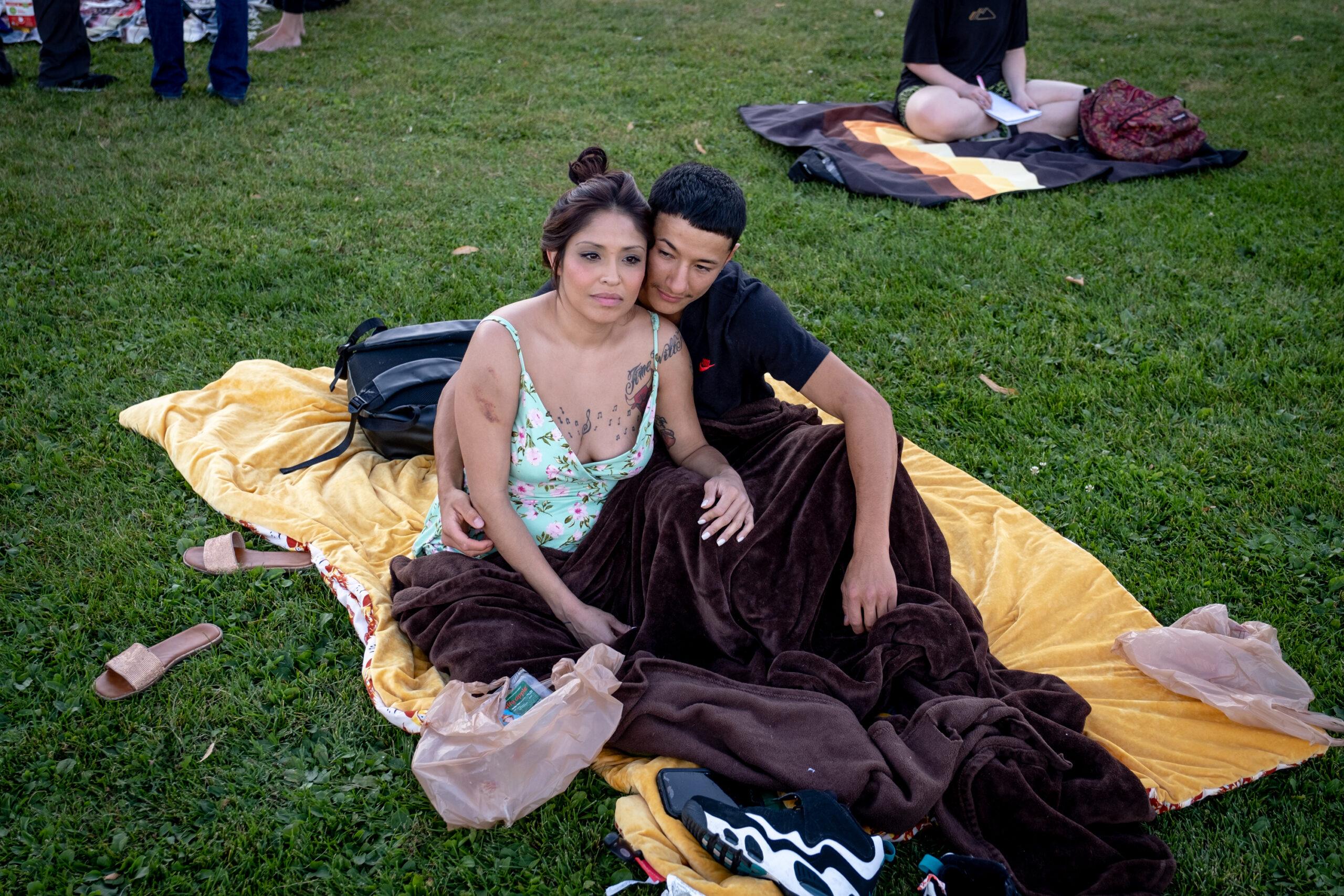
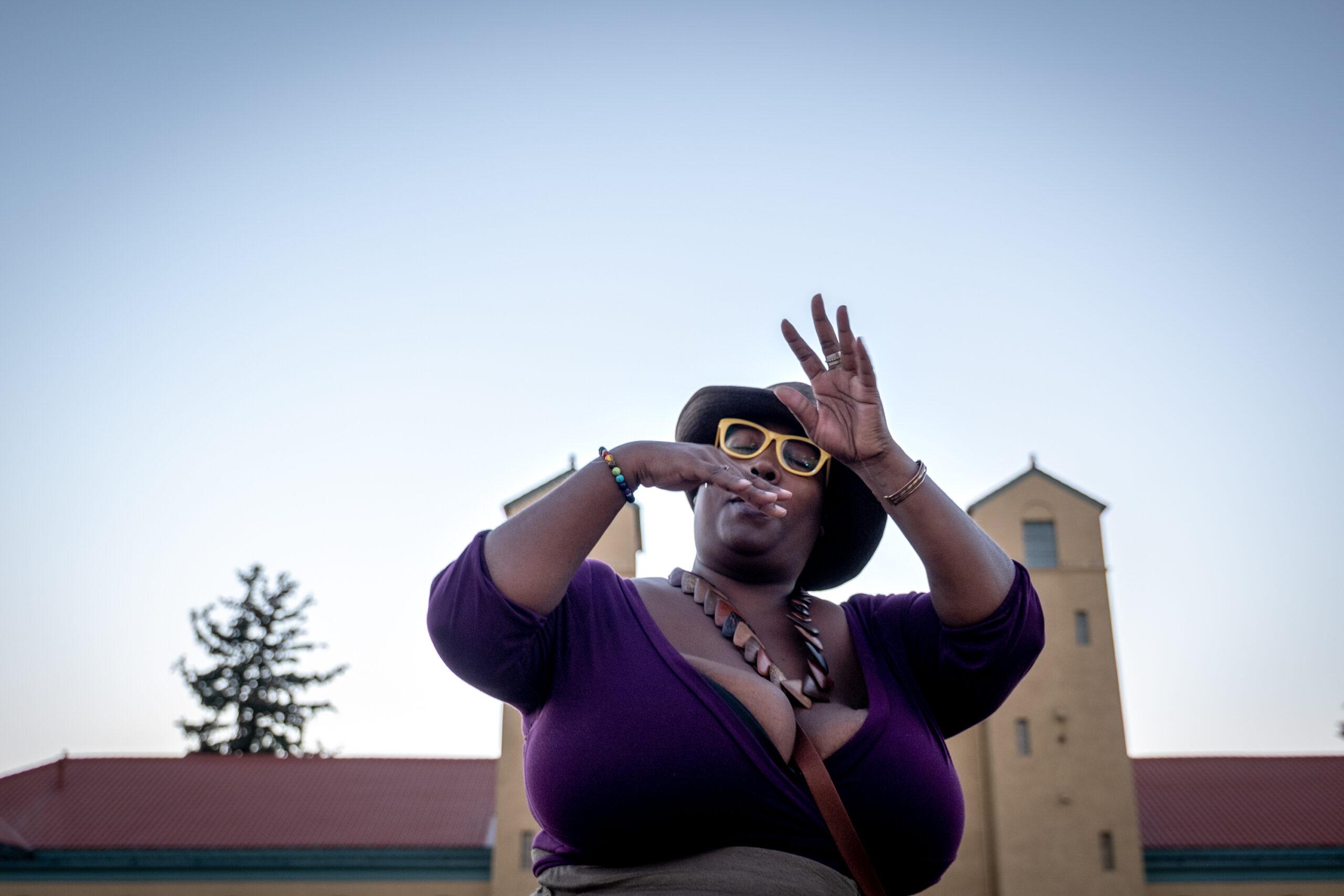
"That connection, that community, that place where people take risks, and are encouraged to do it, that sparks so much," she said. "That sparks new projects, whether those are musical projects, or visual art projects, or radical organizations that help build community and affect change in a positive way for your city. You lose a lot when you don't make space for DIY."
Part of Titwrench's identity is its flexibility to change over time, with the times.
"Every year, it has looked different," Rothery said. "And I think it's because of who was at the table, when we were planning for the festival."
She says that while the festival has always focused on highlighting queer artists, it was founded with a strong female focus.
"That's changed over time, as everyone began to understand gender is more fluid. We stopped using the gender terminology," Rothery said.
She said part of the reason they're ending Titwrench is to make space for other people to be able to reimagine how an event like Titwrench might work in the future.
"Every year's been a little different. We've reimagined it for sure, and our values have definitely flowed with the times and were maybe a little bit ahead of the times at some moments," Rothery said. "But when you've been doing something for so long, you just see what you've been doing, instead of where you could go. And I think we'd like other people to be able to see where it could go."

